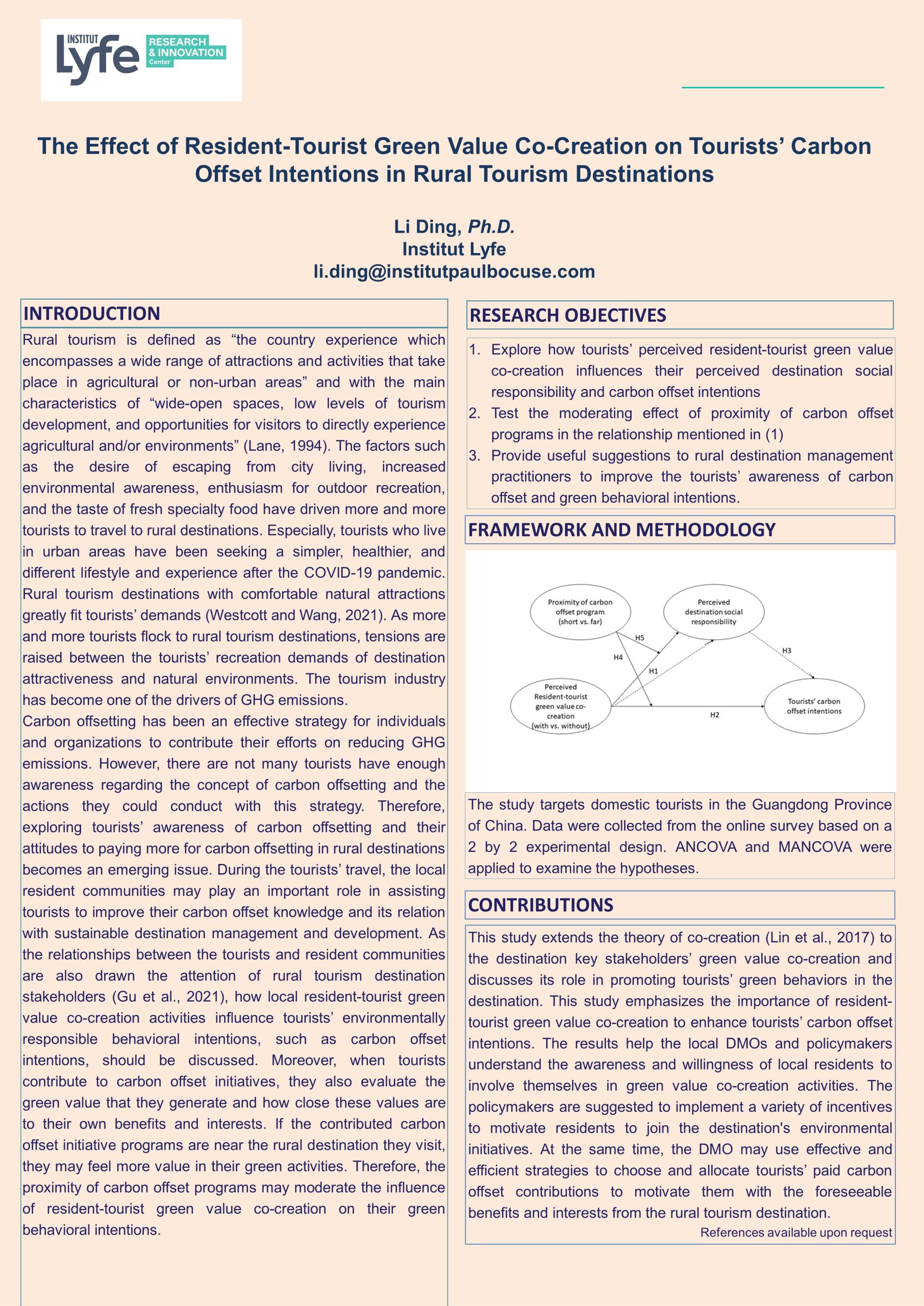Rural tourism has become more and more popular with the improvement of life quality. The increasing number of tourists who travel to rural destinations brings pressure on the local natural environment and the high tension with the local communities.
This study aims to (1) explore how tourists’ perceived resident-tourist green value co-creation influences their perceived destination social responsibility and carbon offset intentions, (2) test the moderating effect of proximity of carbon offset programs in the relationship between tourists’ perceived resident-tourist green value co-creation, perceived destination social responsibility and carbon offset intentions, and (3) provide useful suggestions to rural destination management practitioners to improve the tourists’ awareness of carbon offset and green behavioral intentions.










